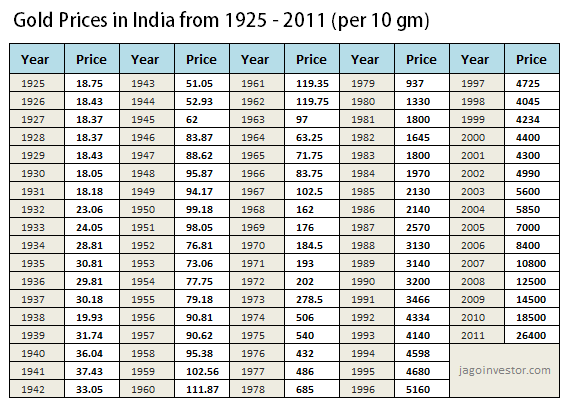Contents:


If you are not holding these shares, you can still be eligible for the bonus issues if you purchase its shares before the ex-date as discussed above. The company does not gather any additional cash on issuing bonus shares. So, the ability to raise money byfollow-on public offersreduces.
Bonus shares means allotting additional free shares to existing shareholders to meet their liquidity requirements. Unlike issuing fresh shares, bonus shares don’t add to the company’s earnings. The record date is the cut-off date decided by the company to be eligible for bonus shares. All shareholders who have shares in their Demat account on the record date will be eligible to receive bonus shares from the company.

The corporate profit to GDP ratio was, thus, lifted to 4.3% from an incredibly low of 2.3% seen in FY20. The recovery has been majorly led by the BFSI, energy, IT and metal sectors. In the revival of the economy, the sectors of real estate, chemicals, standalone refineries, and agricultural processing firms have also seen profitable margins. The way that companies provide rewards for stockholders is by bonus issues, buybacks, or special dividends. What constitutes the exact rewards depends on the company in question, its plans for future business, and decisions taken by members of the company’s board. Investors wanting a steady income seek out shares of companies that offer bonus shares on a regular basis.
Some of the advantages of bonus shares for shareholders are as below.
All the investors who are the shareholders of the company on the Record date will be issued bonus shares. Between issue announcement date and the record date, these bonus shares are known as cum-bonus. Once the bonus shares have been issued on the record date, they are known as ex-bonus. Companies that give out bonus shares to their loyal shareholders can be any companies that are listed on the stock exchange.
When the company announces dividend, it doesn’t segregate whether the shares in your account are rights issues or bonus shares. Companies often issue bonus shares, even if they do not face a shortage of liquid funds. This is a strategy employed by certain companies to avoid the highly levied Dividend Distribution tax, which has to be paid when declaring dividends.
This year alone, in 2022, a record of over 70 companies declaring bonus shares to its shareholders has been achieved. From bonus share handouts, companies reward their existing shareholders and ensure that their shares are limited to shareholders who have been with the company for a long time. New tax rules ensure that investors gain from bonus shares being handed out, provided they have held their original company shares for a certain period. Large corporations like Wipro, ICICI Bank, GAIL, BPCL, L & T, and more have issued a significant amount of bonus shares to loyal and longstanding shareholders.
Macrotech Developers sets record date for 1:1 bonus shares Mint – Mint
Macrotech Developers sets record date for 1:1 bonus shares Mint.
Posted: Fri, 05 May 2023 13:34:11 GMT [source]
When the price of a share is high, a number of retail investors may find it difficult to buy that share. By issuing bonus shares, the total number of shares of the firm increases, thus reducing its stock price and making it accessible to more investors. With more shares in the market at a low price, the liquidity and investor engagement of the shares improve considerably.
However, the gains made by trading in the additional shares are categorised as capital gains and taxed accordingly. As a new-age investor, it is vital to be aware of the fundamentals of the stock market before starting your investment journey. Along with being well-versed in the market dynamics, you must know about the key concepts of the stock markets. One such crucial aspect is knowing about corporate actions, which are the decisions taken by the companies listed on the stock exchange. These can be issuing dividend rights, split stocks and bonus shares.
Read About
This does not directly affect the value or capital of the company overall. Unlike in the case of Rights Issues, this does not dilute the shareholder’s investment. The value of the investment remains unaltered because, even though there is a decrease in the income per share, the shareholder owns a larger number of shares.
All the existing shareholders who own the company’s shares are eligible to receive these shares before the ex-date and record date. The shareholders must buy the company’s shares before the ex-date to be qualified to receive the bonus issue of shares. Bonus Shares are the shares where the company issues additional number of shares to the existing shareholders of the company without incurring any additional cost.
When do Bonus Shares get credited in Demat Account
The issue of bonus shares will enhance the company’s image in the market as existing shareholders will value the management of the company. Companies may consider bonus shares an alternative to dividends and retain cash to reinvest it in the business. The primary benefit investors get from the bonus issue is boosted liquidity of the stock. The company issues bonus shares out of profits or where it has accumulated large cash reserves that cannot be immediately utilized.
- 7.Paid-up shares – Only fully paid-up bonus shares can be issued to the shareholders to protect them from the liability of amount that is uncalled on unpaid-up shares.
- Shares issued in lieu of dividends are a compensation for the shareholders.
- Performance information may have changed since the time of publication.
- 4) Bonus shares help build the trust of an investor in the company’s business and operations because they have invested in the company and, in turn, gives capital to the investor.
- With more shares in the market at a low price, the liquidity and investor engagement of the shares improve considerably.
- These also include shares that may be issued to existing shareholders of a company.
Bonus shares are free shares given to current shareholders by the firm. Bonus shares are distributed in proportion to the number of shares held by an investor. No worries for refund as the money remains in investor’s account. ● Shareholders gain trust in the company after receiving bonus shares. ● Bonus shares help the company sail out of the situation of sharing cash dividends with the shareholders.
The lower the price of the scrip, the higher the increase in retail participation is. Furthermore, the faith of investors is cemented when financially robust companies issue bonus shares. A company facing liquidity issues offers bonus shares to existing shareholders to avoid paying a cash dividend. Companies issue bonus shares to increase the number of equity shares in the market. It makes the company look attractive to investors and makes shares affordable to investors by lowering share price. Both are important and effective corporate actions to attract investors by increasing the number of outstanding shares and reducing the share price .
Plus, investors’ reactions to such corporate actions can also be seen in stock price movements. Therefore, it is important to understand the concept of bonus shares before jumping onto stocks of companies coming up with it. If you are looking to buy shares of companies that are about to announce bonus shares, you must concern yourself with two dates – the record date and ex-date. All shareholders on the day of record date become eligible to receive bonus shares. Since Indian exchanges follow a T+2 settlement process for delivery of shares, it takes two days for the shares to reflect in your account.
When a company issues bonus shares out of profit or reserves, it reflects that the company is financially strong enough to issue more equity shares and has made profits. All existing shareholders before the record date and ex-date are eligible to receive bonus shares. India follows the T+2 rolling system for the delivery of shares. Hence, to qualify to receive bonus shares you must buy stocks before the ex-date. It is important to note that the dividend per share drops since there is an increase in the total number of shares as a result of a bonus issue.
The bonus shares come from the capital reserve, redemption reserve, profit and loss account, or security premium account. Instead, the shareholders get the exact number of shares they held before the ex-date. The shareholders who hold the company’s shares before the record date and ex-date qualify to receive the bonus share. In India, companies follow a system wherein the record date falls two days after the ex-date.
In sum, in order to be eligible for a bonus issue, you need to hold the shares on the record date. If you don’t own the shares already, you can buy the shares before the ex-bonus date if you want to participate in the bonus issue. For instance, recently, Nykaa declared a bonus with the record date as Nov. 11, 2022 and the ex-bonus date as Nov 10, 2022.
For example, if a company announces a one-for-one bonus share, the shareholder will hold double its current holding. After announcing one on one bonus shares, shareholder A will hold 400 shares in company XYZ. Under the Indian Income Tax Act, the cost of the bonus shares is considered as zero. This means that when bonus shares are sold, the entire selling price is considered as capital gains. Let us understand how the price changes after the issuance of bonus shares. To be eligible for the bonus shares, an investor must purchase the shares at least one day before the ex-date.
What are the disadvantages of bonus shares to the investors?
This means that the shares which have been purchased first will be treated as being sold first and so on. 4) No need to issue cheques by investors while subscribing to IPO. The eligibility for bonus shares depends on the record date and ex-date of the shareholders.
These are the who is eligible for bonus shares’s cumulative earnings that company converts into free shares rather than distributing it as dividends. Record date is the cut-off date by which you are required to have the shares in your demat account to be eligible for bonus shares. The company sets this deadline so that it can determine which shareholders are eligible and then distribute bonus shares to them.
The company’s bookkeepers verify the records on the record date to identify stockholders. When a company declares a bonus share issue, it also announces an ex-date. The ex-date is the last day to buy the company’s stock in order to be eligible for a bonus share issue.
The basic calculation of dividends declared by the company depends on the total number of outstanding shares held by a shareholder in his account. Now, when the company announces dividends, it cannot segregate the shares in an investor’s account as rights issues or bonus shares or ordinary shares. So yes, dividends are paid on these shares if declared by the company. The record date in terms ofbonus shares means the cut-off date declared by the company for being eligible for the bonus shares.
Three 1:2 bonus shares: Multibagger IPO turns ₹14,685 to ₹1.58 lakh in six years Mint – Mint
Three 1:2 bonus shares: Multibagger IPO turns ₹14,685 to ₹1.58 lakh in six years Mint.
Posted: Sat, 06 May 2023 02:56:46 GMT [source]
The eligible shareholders are assigned a new ISIN number and within 15 days the shares are credited to the Demat account. The Board of Directors must recommend the bonus issue in its resolution. Additionally, the company’s shareholders should adopt this recommendation at the general meeting.
From an investor’s point of view, however, in terms of benefits, there is not much difference between the two. Just like ordinary equity shares, bonus shares can be divided into fully paid-up bonus shares and partly paid-up bonus shares. Fully paid-up shares are the shares in which the amount is equal to the asked price of the share by the company. These are re-distributed at almost no extra cost in proportion to the investors holding in the company.
- It reflects that the company is strong enough to issue additional equities and has made profits.
- The way that companies provide rewards for stockholders is by bonus issues, buybacks, or special dividends.
- However, the remaining amount for partly paid shares can be paid in instalments when the company makes calls.
- It is important to note that the dividend per share drops since there is an increase in the total number of shares as a result of a bonus issue.
A number of companies issue bonus shares for their shareholders in order to increase the liquidity of the stock or decrease its stock price. These are basically fully paid additional shares issued by a company to its pre-existing shareholder. Also, bonus shares are a great way of rewarding shareholders, especially when companies are short of cash and hence cannot pay out cash dividends.




